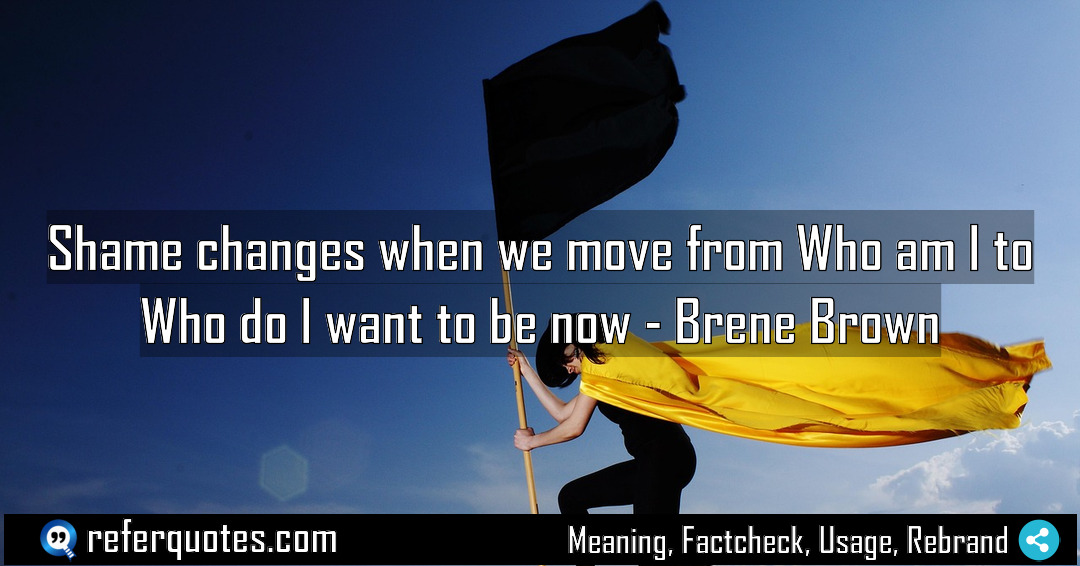You know, that idea “Shame changes when we move from Who am I to Who do I want to be” is a total game-changer. It reframes shame not as a life sentence but as a pivotal moment of choice. This shift in perspective is where real, powerful growth begins, turning a moment of pain into a catalyst for becoming the person you truly want to be.
Share Image Quote:Table of Contents
Meaning
The core message here is that shame loses its power over you when you shift your focus from a fixed, flawed identity to a future, aspirational self.
Explanation
Let me break this down. “Who am I” is a question rooted in the past and present, often filled with all the stories we tell ourselves about our shortcomings and failures. It’s a fixed state. But “Who do I want to be now?” That’s a forward-looking, action-oriented question. It’s about agency. It takes the energy of that shame—and let’s be real, shame has a *lot* of energy—and redirects it from self-flagellation into a blueprint for change. Suddenly, you’re not a “bad” person who made a mistake; you’re a person in progress, making a conscious choice about your next step. It’s the difference between being defined by your past and being guided by your future values.
Quote Summary
| Context | Attributes |
|---|---|
| Original Language | English (3668) |
| Category | Success (341) |
| Topics | choice (55), future (24), identity (102) |
| Literary Style | concise (408), reframing (1) |
| Emotion / Mood | hopeful (357) |
| Overall Quote Score | 70 (55) |
Origin & Factcheck
This quote comes directly from Brené Brown’s 2004 book, Women & Shame: Reaching Out, Speaking Truths, which was published in the United States. It’s a foundational concept from her early research, before she became a global phenomenon with her TED talks. You won’t find it falsely attributed elsewhere because it’s pure, uncut Brené from the source.
Attribution Summary
| Context | Attributes |
|---|---|
| Author | Brene Brown (257) |
| Source Type | Book (4032) |
| Source/Book Name | Women & Shame: Reaching Out, Speaking Truths (39) |
| Origin Timeperiod | 21st Century (1892) |
| Original Language | English (3668) |
| Authenticity | Verified (4032) |
Author Bio
Dr Brene Brown is the author of books such as Daring Greatly and The Power of Vulnerability. The TED talk and Netflix production based on her research reached out to millions of audience. She researches effects of courage and vulnerability in shaping people's work and relationships. She leads the Brené Brown Education and Research Group and provides evidence-based insights into practical tools to help people train themselves
Official Website |Facebook | X | Instagram | YouTube |
Where is this quotation located?
| Quotation | Shame changes when we move from Who am I to Who do I want to be now |
| Book Details | Publication Year: 2004; (other edition details unknown) |
| Where is it? | Approximate page from 2004 Hazelden edition, Section: Identity Reframes |
